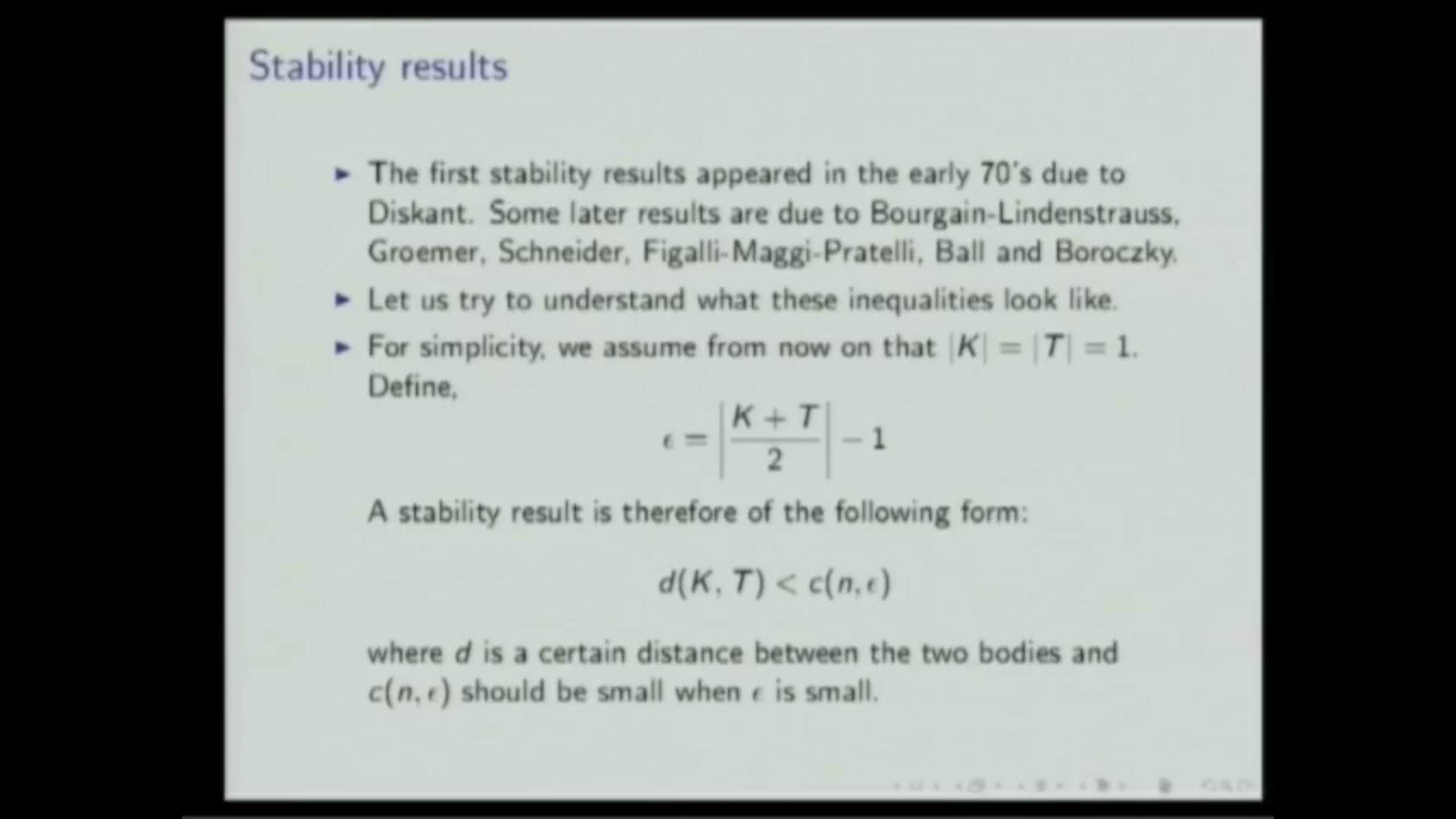The effect of dimensionality on the stability in the Brunn-Minkowski inequality: A blessing or a curse?
Presenter
September 23, 2011
Keywords:
- quantitative geometry
- probability theory
- stability
- effective bounds
- probabilistic measure theory
MSC:
- 60Gxx
- 60-xx
- 46-xx
- 46Bxx
- 46B09
- 46B15
- 46B80
- 60F05
- 60Fxx
Abstract
For a lower bound on the stability, consider the example A = [0,1]^n and B = [0,1+delta]^(n/2) times [0,1/(1+delta)]^(n/2). By choosing delta appropriately, the stability in terms of the measure of the symmetric difference scales like n^2 (although the stability in terms of the Wasserstein distance remains fixed as n grows). This scaling is actually the worst that is known, so it is possible that the bound of Figalli, Maggi and Pratelli (which grows like n^7) could be improved.
A joint work with Bo'az Klartag
